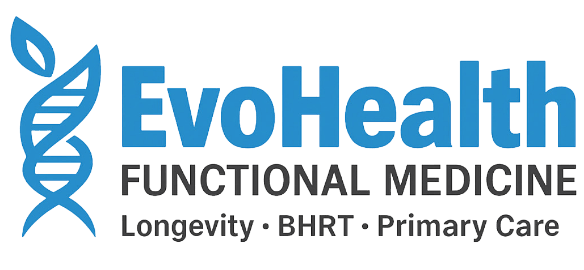Attention Deficit Hyperactivity Disorder is a disorder that affects thousands of people throughout Kansas. Currently, conventional therapies like stimulant medication and behavioral therapy are commonly used to manage ADHD symptoms. However, I have found that many of my patients are looking for natural treatment options to use in combination with their current treatment protocols or as a primary treatment therapy as stimulant medications can come with significant side effects. In this blog post, we will explore some effective natural treatment options for ADHD that have been shown to be effective in managing symptoms.
Overview of ADHD
Attention Deficit Hyperactivity Disorder (ADHD) is a complex neurodevelopmental disorder that stems from a persons genetics, imbalance of neurotransmitters, and environmental factors like stress and diet. ADHD in most cases is diagnosed in childhood, although there is a subset of individuals may not receive a a formal diagnosis until later on in life.
Symptoms of ADHD can have a high degree of heterogeneity from person to person but can be isolated into two categories: inattentive symptoms and hyperactive-impulsive symptoms. Symptoms consistent with inattentive can include an impaired ability to sustain focus, memory issues, and lack of organization. On the other hand, hyperactive-impulsive symptoms can include an inability to sit still, restlessness, and impulsivity.
ADHD can have a significant impact on a person’s quality of life, including their academic and work performance, social relationships, and emotional well-being.

Diet & ADHD
An individuals diet can have significant impact on symptoms of ADHD. Diet may not be a direct underlying cause of ADHD but it can influence the severity and frequency of the symptoms.
One of the most important dietary factors for managing ADHD is avoiding highly processed foods that can lead to blood sugar fluctuations, which has an impact on neuronal metabolism.
A healthy, balanced diet that includes plenty of protein, healthy fats, and complex carbohydrates that decreases blood sugar fluctuations can help to improve focus, reduce restlessness, and stabilize mood. Optimal protein intake is imperative for individuals with ADHD, as it helps to regulate the concentrations of dopamine and norepinephrine, which are two neuromodulators that are imperative for maintaining focus and mood regulation.
Therapeutics Foods for ADHD include:
- Fish: Fatty fish, such as salmon, tuna, and sardines, are high in omega-3 fatty acids, which have been shown to improve attention and reduce hyperactivity.
- Whole grains: Whole grains, such as brown rice and quinoa, are a good source of complex carbohydrates, which provide a steady supply of energy to the brain and help to stabilize mood and energy levels.
- Fruits and vegetables: Fruits and vegetables are rich in vitamins, minerals, and antioxidants, which are important for brain health and function.

ADHD Supplements
Medical grade supplements can potentiate the effectiveness of a comprehensive treatment plan for ADHD, especially when used under the guidance of a medical provider.
Here are some of the most commonly used supplements for ADHD:
- DHA/EPA: Omega 3s are an effective treatment option for ADHD as these compound buffer neuroinflammation while also increasing the amounts of Brain Derived Neurotrophic Factor which has been shown to be effective for memory and focus.
- Magnesium: Magnesium is important for neurotransmitter function and may help to improve focus and attention.
- Vitamin D: Vitamin D is important for overall health and brain function. Low levels of vitamin D have been linked to an increased risk of ADHD, and vitamin D supplements may help to alleviate symptoms.
- Phosphatidylserine: Research has shown that phosphatidylserine supplements may increase dopamine receptor density and enhance dopamine release in the brain, leading to improvements in attention and focus.
- Affron: Affron is a patented extract of Saffron which has been shown to improve concentrations of serotonin and dopamine in the brain and which are two neurotransmitters that have been implicated in ADHD.
These compounds may be an effective treatment option for ADHD management. However, it’s important to use supplements under the guidance of a healthcare professional and not as a substitute for medication or behavioral therapy.
Functional Medicine & ADHD in Kansas
One of the most well established benefits of working with a Certified Functional Medicine Provider for ADHD is that providers take a comprehensive and holistic approach to treatment. Instead of just prescribing medication, Functional Medicine practitioners look at a person’s lifestyle, nutrition, environment, and genetics to identify potential triggers or underlying causes of ADHD symptoms. This approach helps to identify and address the root cause of the problem rather than just masking the symptoms.
Functional Medicine practitioners may use a variety of tools to help identify the root cause of ADHD, including advanced lab testing, genetic analysis, and lifestyle assessments. EvoHealth Kansas Functional Medicine offers lab testing services for Kansas City, Overland Park, Lawrence, Wichita, and Topeka residents.
